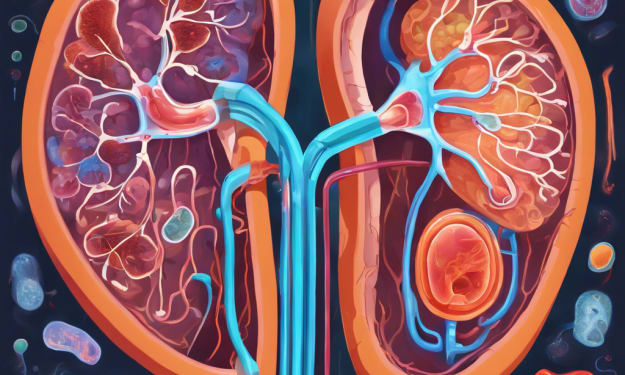Indulging in Kerala's Festive Foods and Special Occasions: A Gastronomic Celebration of Tradition
Festive Foods and Special Occasions
In the heart of Kerala's vibrant culture lies a rich tapestry of festivals and special occasions, each adorned with its unique rituals, traditions, and, of course, sumptuous feasts. Food plays a central role in these celebrations, serving as a bridge between the past and the present, a symbol of unity and community, and a medium through which cherished traditions are passed down from generation to generation. From the grand festivities of Onam and Vishu to the joyous union of weddings, let's delve into the rich culinary heritage of Kerala's festive foods and special occasions, exploring the traditional feasts, rituals, and the symbolism of specific dishes served during these events.
1. Onam: The Harvest Festival of Kerala
Onam, the most celebrated festival in Kerala, is a vibrant extravaganza that commemorates the mythical return of King Mahabali, a benevolent ruler believed to visit Kerala during the harvest season. Marked by colorful floral decorations, traditional dances like Thiruvathirakali, and spirited boat races known as Vallamkali, Onam is a time for family gatherings, cultural performances, and, of course, feasting. The Onam sadya, a grand vegetarian feast served on a banana leaf, is the centerpiece of the celebrations, featuring an elaborate spread of dishes that showcases Kerala's culinary diversity and heritage.
Key Dishes and Symbolism:
Avial: Symbolizing abundance and prosperity, Avial is a mixed vegetable curry made with a variety of seasonal vegetables, coconut, and spices, served as a symbol of unity and harmony.
Payasam: A rich and creamy dessert made with milk, rice, jaggery, and flavored with cardamom, raisins, and nuts, Payasam represents sweetness and joy, marking the completion of the meal on a delightful note.
Pulissery: A tangy and spicy curry made with ripe mangoes or sour curd, Pulissery symbolizes the bittersweet essence of life, reminding celebrants of the cyclical nature of time and the importance of embracing both joy and sorrow.
2. Vishu: Welcoming the New Year with Prosperity
Vishu, Kerala's traditional New Year festival, is a time for renewal, reflection, and the welcoming of prosperity and abundance into one's life. The highlight of Vishu celebrations is the Vishu Kani, an auspicious arrangement of auspicious items like rice, fruits, vegetables, flowers, and gold coins, viewed first thing in the morning to usher in good fortune for the year ahead. The Vishu sadya, a feast featuring a delectable array of dishes, is another integral part of the festivities, bringing families together to share in the joy of the new beginnings.
Key Dishes and Symbolism:
Vishu Kanji: A traditional rice porridge made with coconut milk, jaggery, and spices, Vishu Kanji represents nourishment and abundance, symbolizing the blessings of a bountiful harvest and a prosperous year ahead.
Thorans and Pachadis: A variety of Thorans (stir-fried vegetables with grated coconut) and Pachadis (spicy chutneys) made with seasonal vegetables and herbs symbolize the freshness and vitality of nature, reflecting the abundance of the spring season.
3. Weddings: A Union of Hearts and Palates
Weddings in Kerala are grand affairs marked by elaborate rituals, colorful ceremonies, and, of course, lavish feasts that bring families and communities together in celebration of love and union. From the traditional engagement ceremony known as Nischayam to the ceremonial tying of the knot or Thali Kettu, weddings in Kerala are a testament to the region's rich cultural heritage and the importance of food in fostering bonds and creating lasting memories.
Key Dishes and Symbolism:
Sadhya: The traditional Kerala wedding feast, known as Sadhya, is a lavish spread of vegetarian dishes served on a banana leaf, symbolizing abundance, prosperity, and hospitality. The Sadhya features a variety of dishes like Avial, Thoran, Olan, and Parippu Curry, each representing different aspects of married life, from unity and harmony to fertility and prosperity.
Payasam: A must-have dessert at Kerala weddings, Payasam is served as a symbol of sweetness, joy, and new beginnings, marking the union of two families and the start of a new chapter in the couple's life.
In conclusion, Kerala's festive foods and special occasions are a celebration of tradition, community, and the rich cultural heritage of the region. From the grand feasts of Onam and Vishu to the joyous union of weddings, food plays a central role in these celebrations, serving as a symbol of unity, prosperity, and the enduring spirit of Kerala's vibrant culture. As families come together to share in the joy of these occasions, they not only savor the flavors of tradition but also create cherished memories that will last a lifetime.
About the Creator
Shwet Prabha Baiswar
Hey there! I'm Shwet Prabha, your friendly neighborhood blogger. Dive into my world of words where curiosity meets content. Let's make this journey together—because every word counts! #BlogLife #ExploreWithMe
Enjoyed the story? Support the Creator.
Subscribe for free to receive all their stories in your feed. You could also pledge your support or give them a one-off tip, letting them know you appreciate their work.







Comments
There are no comments for this story
Be the first to respond and start the conversation.